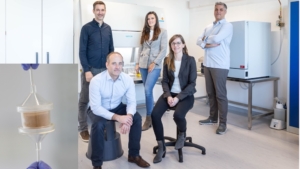
Curevac reports another failed cancer vaccine
For thirty years, industry has worked hard to establish vaccines that can cure cancer. At the 35th JP Morgan Healthcare Conference, German Curevac reported another failure. It remains open whether cancer vaccines or co-administration of other drug classes to immune checkpoint modulators can break solid tumour's immune tolerance tactics.
Curevac didn’t report details of the Phase IIb proof-of-concept study with its RNActive prostate cancer vaccine CV9104 at the 35th JP Morgan Healthcare Conference in San Francisco. However the company announced that its vaccine candidate, composed of six protamine-stabilised mRNAs encoding individually antigens, failed to improve overall survival in patients with asymptomatic or minimally symptomatic metastatic castrate-resistant prostate cancer vs placebo. The same was true for progression-free survival, one of the secondary endpoints. No safety events were reported in the 197 patients enrolled.
Curevac’s CEO Ingmar Hoerr said he now puts his hopes on combination of CV9104 with checkpoint inhibitors which have shown stronger immune responses that CV9104 alone in preclinical models. It’s an open question if mRNA-based vaccines generally are not suitable as cancer monotherapy or if Curevac’s failure is an isolated case. Together with the US company Moderna, and BioNTech, which recently partnered its IVAC platform with Genentech, Curevac is one of three of the main players in the mRNA-based vaccine field.
Most recently, Roche’ US arm Genentech and its partner BioNTec announced to kick off clinical testing of a mRNA-based vaccine suited to several individual cancer neo-antigens of certain tumours. The San Francisco-based biologics specialist, however, will right off the bat assess safety/efficacy in combination with the company’s PD-L1 checkpoint inhibitor atezolizumab. Moderna’s mRNA vaccines are currently in Phase I testing.
According to pipeline analyses from Ep Vantage, more than half of the agents paired with PD-1 and PD-L1 inhibitors are small molecules, chemotherapies and established drugs. Checkpoint modulators are being tested in combination from the very beginning of clinical testing. Older therapies such as oncolytic viruses and vaccines that have so far disappointed as monotherapies might benefit from the combination approach.


 TQ Therapeutics GmbH
TQ Therapeutics GmbH
 BioNTech SE
BioNTech SE